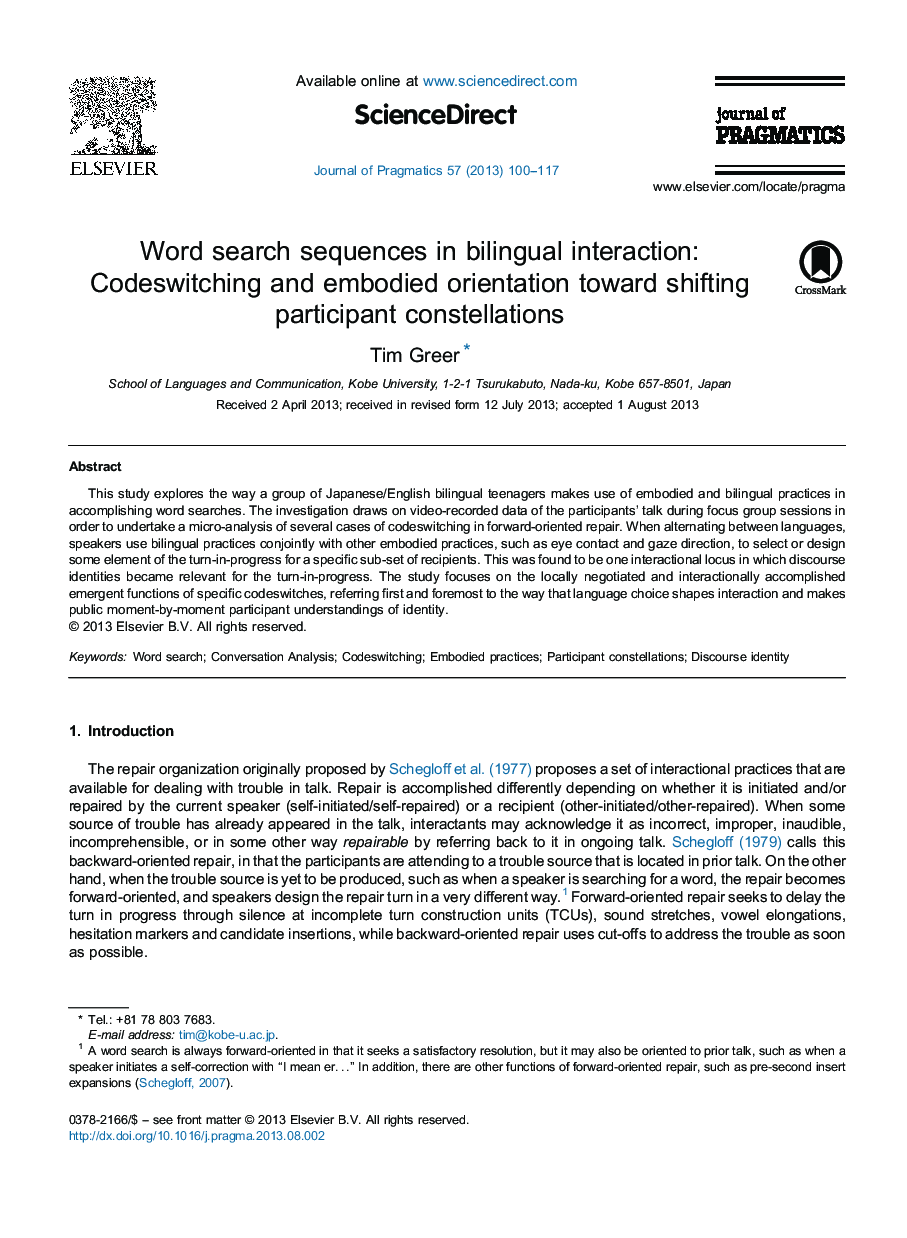| کد مقاله | کد نشریه | سال انتشار | مقاله انگلیسی | نسخه تمام متن |
|---|---|---|---|---|
| 932832 | 1474742 | 2013 | 18 صفحه PDF | دانلود رایگان |

• Examines embodied practices in multi-party Japanese/English forward-oriented repair.
• Speakers codeswitch in conjunction with eye contact and gaze direction.
• Embodied and bilingual practices design elements of a turn for a specific sub-set of recipients.
• Participant constellations become relevant for the turn-in-progress at this locus.
• Interactants’ understandings of identity are made public through language choice.
This study explores the way a group of Japanese/English bilingual teenagers makes use of embodied and bilingual practices in accomplishing word searches. The investigation draws on video-recorded data of the participants’ talk during focus group sessions in order to undertake a micro-analysis of several cases of codeswitching in forward-oriented repair. When alternating between languages, speakers use bilingual practices conjointly with other embodied practices, such as eye contact and gaze direction, to select or design some element of the turn-in-progress for a specific sub-set of recipients. This was found to be one interactional locus in which discourse identities became relevant for the turn-in-progress. The study focuses on the locally negotiated and interactionally accomplished emergent functions of specific codeswitches, referring first and foremost to the way that language choice shapes interaction and makes public moment-by-moment participant understandings of identity.
Journal: Journal of Pragmatics - Volume 57, October 2013, Pages 100–117